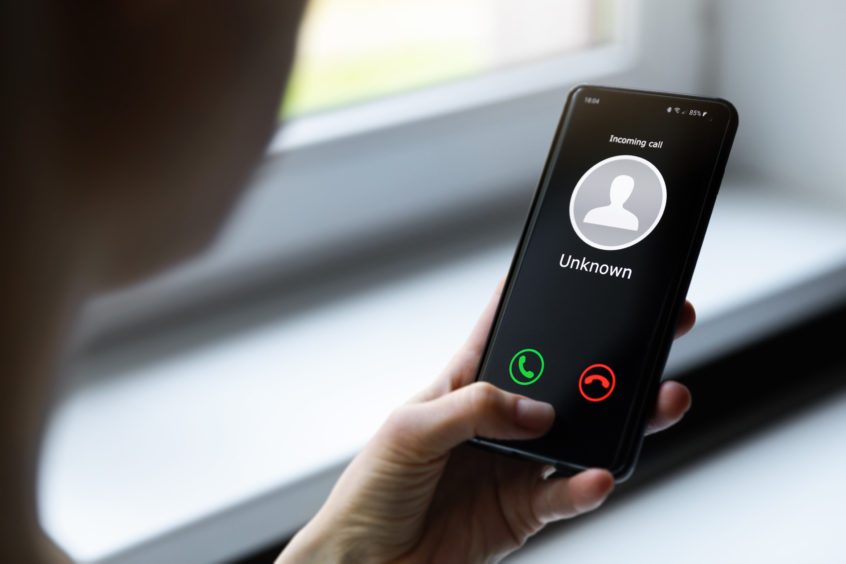Recently, the Kansas Insurance Commissioner issued a warning to consumers that there has been an uptick in the number of complaints due to scams. Here are some to things to watch out for:
- “Coronavirus Insurance” is not real. It does not exist. Anyone trying to sell it is trying to scam you.
- Beware of phone calls where people claim to be from your insurance company. They may even have some of your information. Don’t change your policy during these phone calls or give out any personal information. Hang up and call your agent.
- NEVER give out any personal information (Medicare number, Social Security number, credit card number, etc.) to anyone over the phone.
- DON’T carry your Social Security card with you or write the number on a check. Put the card in a safe place and only give your number out when absolutely necessary.
- DON’T overshare your personal information on social networking sites. If you post too much information, like when you’re out of town on vacation, it can make you a target for thieves. In addition, DON’T post your full name or the year of your birth. This information can also give thieves what they need to scam you.
- Password protect your cell phone and other digital devices in the event that they are lost or stolen.
In addition, be a smart consumer when shopping for hearing aids. There are lots of “marketing gimmicks,” like field trials, that may not be blatant scams, but they are not considered ethical practices by doctoral-level audiologists. Here are some tips to help you navigate hearing aid purchases:
- Find the right provider and begin with a diagnostic hearing evaluation which is the “blueprint” for your individualized recommendations. Ninety percent of your success with hearing aids is related to the professional you work with. Look for university-trained, doctoral-level licensed audiologists who are certified by the American Speech-Language-Hearing Association, and uphold a professional code of ethics.
- Work with a provider who can give you options specific to you and your lifestyle. Your audiologist should be able to choose from a variety of hearing aids from a number of respected manufacturers. Franchise or “chain” stores often do not provide this flexibility for consumers.
- There are significant differences across hearing aid technology. A hearing aid uses tiny computer chips to process sound. More sophisticated computer chips have better processing which help make it easier for you to hear and understand in all situations. Typically, the cost of hearing aids starts at $675 per ear and increases, depending on the style and level of technology purchased, and the length of time the professional hearing aid related services are included with your purchase. Hearing aid costs usually increase with more advanced and sophisticated technology and/or when more services are included.
- Make sure your audiologist uses specialized diagnostic and verification equipment, including real-ear probe microphone and speech mapping measures. These sophisticated tests independently verify how the hearing aid functions while in your ear, and ensure you aren’t getting over-amplified.
- Regular follow-ups are necessary so expect to pre-schedule your appointments. Routine maintenance and regular monitoring of hearing and hearing aids are critical to success.
- A hearing aid purchase should include an assessment period during which the hearing aid fee is either fully refundable, or has a minimum restocking/non-refundable amount, if the device isn’t satisfactory. Be sure to ask about the other options available if a particular device doesn’t work out as expected during the assessment period.
- Be informed. Advertisements that offer big discounts or special “discount plans” are usually based upon inflated manufacturer’s suggested retail price (MSRP). “Free trials” are often non-custom devices fit without verification. Also, be wary of advertisements promising discounts for trying new hearing aids under “study or clinical trial.” These marketing techniques can be misleading because hearing aid manufacturers conduct these studies prior to new product release. Beware of what appear to be less expensive options or third-party discount programs for hearing aids. These often don’t include the professional services necessary to meet your ongoing hearing aid needs and they may assess non-refundable fees.
- Hearing aid manufacturers discourage the sale and purchase of hearing aids online or through the mail, especially for those which are not directly supported by local, licensed professionals trained to fit their sophisticated hearing aid technology. Hearing aids purchased online may not be warrantied, may be difficult to get refunded, and in some cases take advantage of the online consumer.
If you have questions regarding a hearing aid sales promotion you’ve recently received, call Associated Audiologists at 855-547-8745. If you’re concerned about fraud, contact your state attorney general, hearing aid board, or the insurance commissioner.



